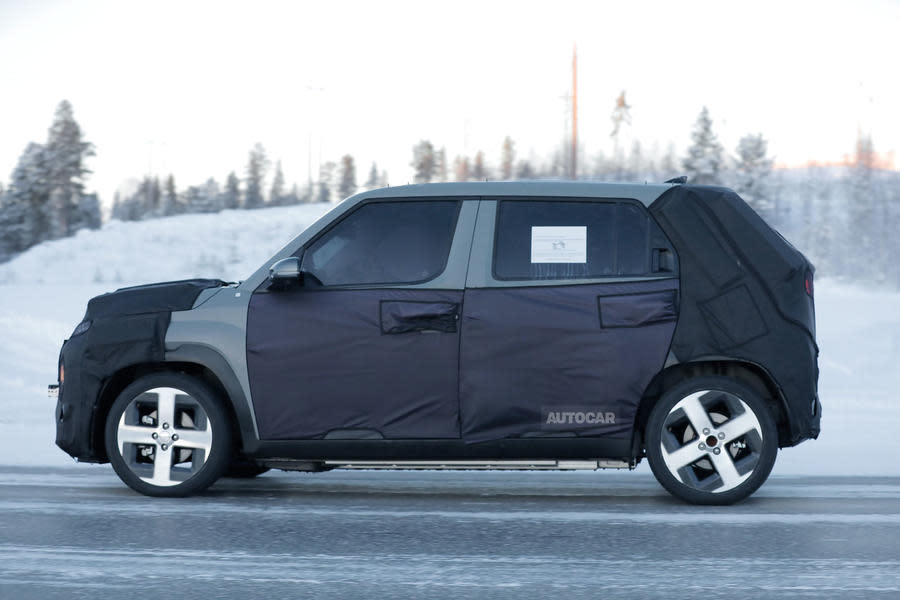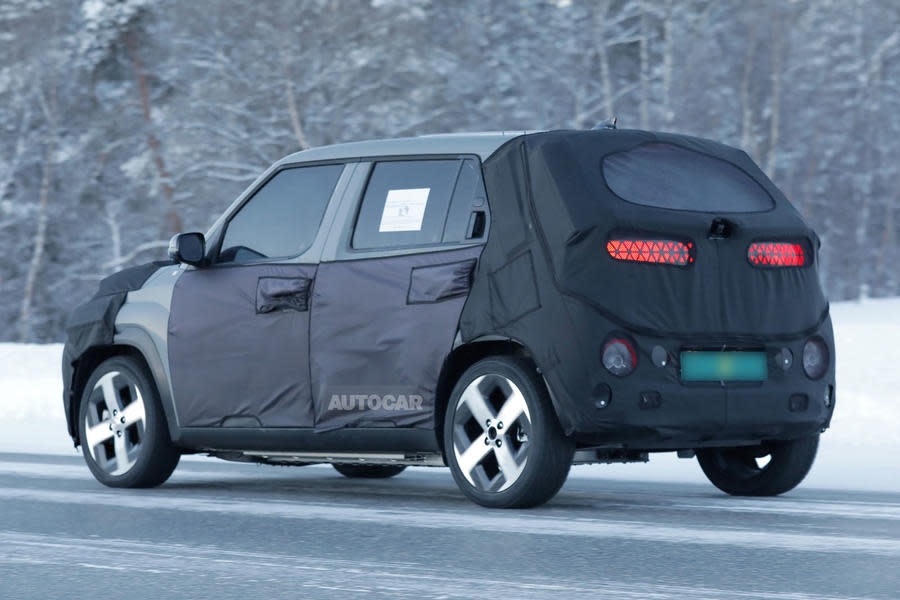Hyundai Casper set for European launch with electric power

Casper has a thrummy 1.0-litre three-pot in Korea, but EV prototypes have been spotted
The Hyundai Casper could soon become available in European markets with a new electric powertrain.
The crossover-style city car, which is currently sold exclusively in South Korea, has been spotted winter testing in Scandinavia, suggesting it could be completing the homologation process for Europe.
Its appearance came days after French magazine Auto Moto quoted the head of Hyundai France, Lionel French Keogh, as confirming the Casper would arrive in the market by the end of 2024.
The publication said the Casper will indeed arrive as an electric car, not offering any of the 1.0-litre three-cylinder petrol engines used in Korea.
It added that the car will offer more power than the Dacia Spring, one of Europe's cheapest electric cars, which produces 64bhp and yields 143 miles between charges.
The Casper could possibly borrow its electric powertrain from the Kia Ray EV, which is based on the same architecture (as are the Hyundai i10 and Kia Picanto).
The Ray packs an 86bhp front-mounted electric motor and a 35.2kWh battery to muster a range of 127 miles.

Despite its competitive specification, the Casper will remain priced below €20,000 (£17,000), according to Auto Moto.
This would position it in direct competition with the new Citroën e-C3, which is due in Europe in 2025 with 111bhp and 124-mile range for £17,000.
Hyundai has previously hinted that the Casper could make it to European shores after an electric conversion. However, several key hurdles have thus far prevented it from becoming available outside its home country. Chief among these are the costs of making a small car in Europe; of meeting the EU's new GSR2 safety regulations; and of providing the equipment levels expected in the region.

Moreover, demand for the Casper in Korea alone is almost sufficient to fulfil the capacity of the plant where it's built. According to data from Hyundai, 45,451 Caspers were sold last year. Nikkei Asia reported in November 2021, when the factory in Gwangju opened its doors, that it had an annual capacity of 70,000.
Exporting the Casper to Europe while maintaining sales momentum in its home market would likely require either a significant increase in capacity at Gwangju or an additional production line in Europe.
The Nikkei report said that Hyundai planned to expand Gwangju to more than 200,000 cars per year, including EVs.
Hyundai UK declined Autocar’s request for comment.

Regardless of which models Hyundai decides to import to Europe, it has previously committed to continued production of small cars.
The brand’s European chief, Michael Cole, told Autocar in March 2023 that the i10, i20 and i30 were “all still in our plan, even for the next generation”.
Cole added that the next challenge is to evaluate smaller EVs, saying: “I believe there's a market below [the] Kona [crossover] and maybe even in more traditional bodystyles, such as hatchback.
“It’s in our thinking, rather than necessarily in our long-term plan now. But for the European market, we have to be thinking about that.”

Sibling brand Kia has also signalled its intent to offer affordable electric cars for the masses. At its first EV Day event in October 2023, it announced plans to build a new model targeted at European markets, priced at around £25,000. Dubbed the EV2, it’s expected to arrive around 2026.
Kia CEO Ho-Sung Song told Autocar that affordable electric cars were “very important” for the firm, “especially for the European market that is in need of smaller [electric] vehicles too”.
]]>

 Yahoo Autos
Yahoo Autos 